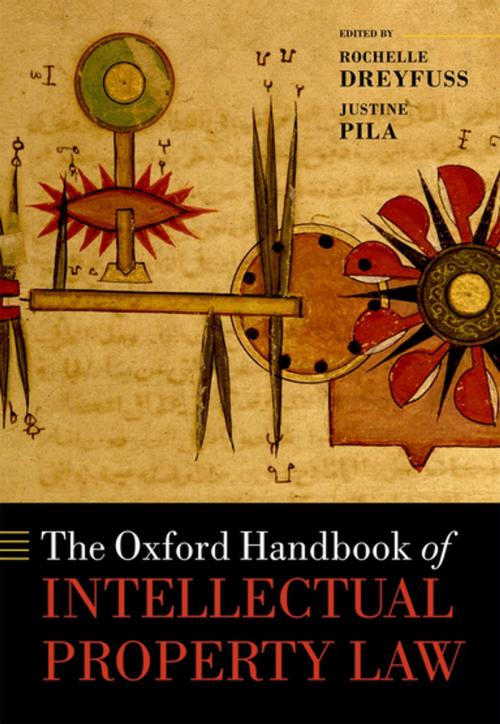The Oxford Handbook of Intellectual Property Law
Nonfiction, Reference & Language, Law, Patent, Trademark, & Copyright, Intellectual Property| Author: | ISBN: | 9780191076107 | |
| Publisher: | OUP Oxford | Publication: | April 12, 2018 |
| Imprint: | OUP Oxford | Language: | English |
| Author: | |
| ISBN: | 9780191076107 |
| Publisher: | OUP Oxford |
| Publication: | April 12, 2018 |
| Imprint: | OUP Oxford |
| Language: | English |
We live in an age in which expressive, informational, and technological subject matter are becoming increasingly important. Intellectual property is the primary means by which the law seeks to regulate such subject matter. It aims to promote innovation and creativity, and in doing so to support solutions to global environmental and health problems, as well as freedom of expression and democracy. It also seeks to stimulate economic growth and competition, accounting for its centrality to EU Internal Market and international trade and development policies. Additionally, it is of enormous and increasing importance to business. As a result there is a substantial and ever-growing interest in intellectual property law across all spheres of industry and social policy, including an interest in its legal principles, its social and normative foundations, and its place and operation in the political economy. This handbook written by leading academics and practitioners from the field of intellectual property law, and suitable for both a specialist legal readership and an intelligent but non-specialist legal and non-legal readership, provides a comprehensive account of the following areas: - The foundations of IP law, including its emergence and development in different jurisdictions and regions; - The substantive rules and principles of IP; and - Important issues arising from the existence and operation of IP in the political economy.
We live in an age in which expressive, informational, and technological subject matter are becoming increasingly important. Intellectual property is the primary means by which the law seeks to regulate such subject matter. It aims to promote innovation and creativity, and in doing so to support solutions to global environmental and health problems, as well as freedom of expression and democracy. It also seeks to stimulate economic growth and competition, accounting for its centrality to EU Internal Market and international trade and development policies. Additionally, it is of enormous and increasing importance to business. As a result there is a substantial and ever-growing interest in intellectual property law across all spheres of industry and social policy, including an interest in its legal principles, its social and normative foundations, and its place and operation in the political economy. This handbook written by leading academics and practitioners from the field of intellectual property law, and suitable for both a specialist legal readership and an intelligent but non-specialist legal and non-legal readership, provides a comprehensive account of the following areas: - The foundations of IP law, including its emergence and development in different jurisdictions and regions; - The substantive rules and principles of IP; and - Important issues arising from the existence and operation of IP in the political economy.















